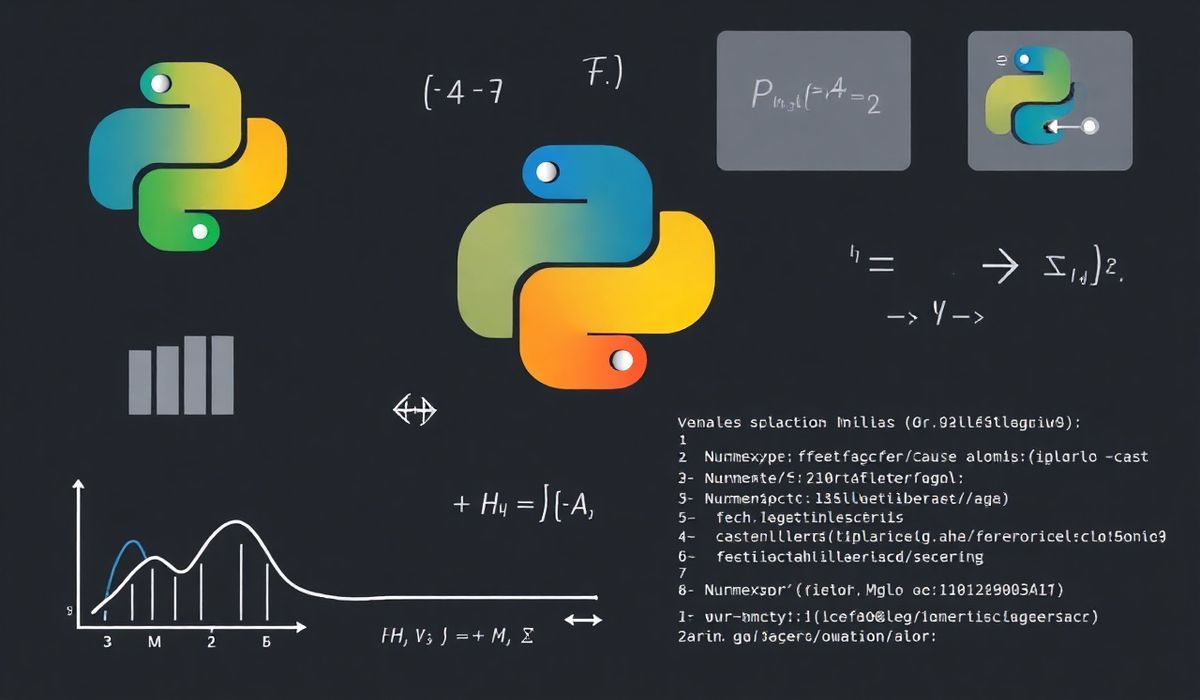Introduction to numexpr – High-Performance Numerical Expressions
Python is well-regarded for its simplicity and ease of use, but numerical computations can sometimes become a bottleneck due to Python’s interpreted nature. Enter numexpr, a high-performance library designed to evaluate mathematical expressions quickly using optimized C and SIMD operations. Whether it’s large datasets or complex computations, numexpr ensures efficiency and speed without overcomplicating code.
Why Use numexpr?
Here are some key reasons why you should consider using numexpr in your Python projects:
- Significant speed boost for array operations as it minimizes memory requirements and takes full advantage of modern CPUs with SIMD instructions.
- Ability to evaluate numerical expressions as strings without creating large intermediate arrays.
- Easily integrates with NumPy for extended functionality.
Getting Started with numexpr
To install numexpr, simply use pip:
pip install numexpr
evaluate() – The Core API of numexpr
The most important method in numexpr is evaluate(). Let’s see it in action:
import numexpr as ne
import numpy as np
# Create data
a = np.arange(1e6)
b = np.arange(1e6)
# Evaluate expression
result = ne.evaluate("2 * a + 3 * b")
print(result)
This example computes the expression 2 * a + 3 * b very efficiently, leveraging multi-threading and SIMD instructions behind the scenes.
Advanced API Examples
Using Conditional Expressions
c = ne.evaluate("where(a > b, a, b)")
print(c)
The where function evaluates an element-wise condition and returns values based on the condition.
Computing Trigonometric Functions
result = ne.evaluate("sin(a) + cos(b)")
print(result)
Use trigonometric operations effortlessly with numexpr.
Using Mathematical Constants
result = ne.evaluate("3.14159 * a**2")
print(result)
Use constants like Pi to simplify evaluation of numerical expressions.
Multi-Threading and Efficiency
ne.set_num_threads(4) # Set the number of threads
result = ne.evaluate("a**2 + b**3")
print(result)
Take full advantage of your CPU’s multi-core architecture using set_num_threads().
Evaluating Boolean Expressions
is_greater = ne.evaluate("a > b")
print(is_greater)
Handle comparisons between arrays with ease.
Building an Application with numexpr
To showcase the power of numexpr, let’s build a simple data analysis app where we filter and compute operations on large datasets:
import numexpr as ne
import numpy as np
import time
# Simulate large datasets
data_a = np.random.rand(10**7)
data_b = np.random.rand(10**7)
# Filter data where a > 0.5 and b < 0.5 and compute a complex expression
start_time = time.time()
filtered_result = ne.evaluate("a * (a > 0.5) & (b < 0.5)")
print("Filtered Result: ", filtered_result[:10]) # Show only first 10 elements
print(f"Computation Time: {time.time() - start_time:.4f} seconds")
This app simulates large datasets, filters them based on a condition, and computes complex expressions efficiently, making it ideal for data processing tasks.
Conclusion
numexpr is a must-have library for Python developers working with large datasets or computationally expensive operations. Its simplicity and high performance make it an excellent choice for scientific computing and data analysis tasks. Start using numexpr today for fast and efficient numerical computations!




